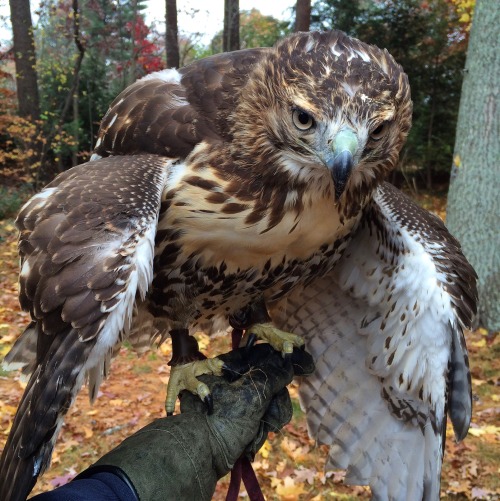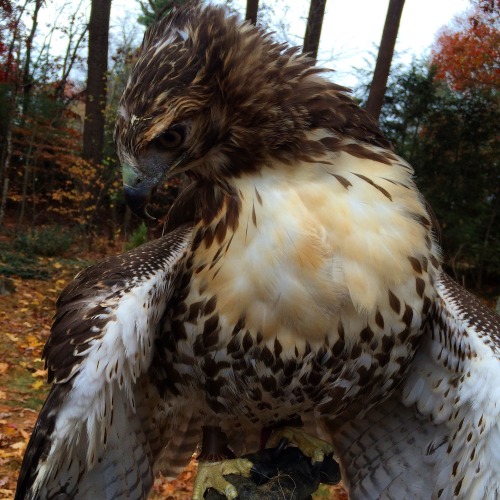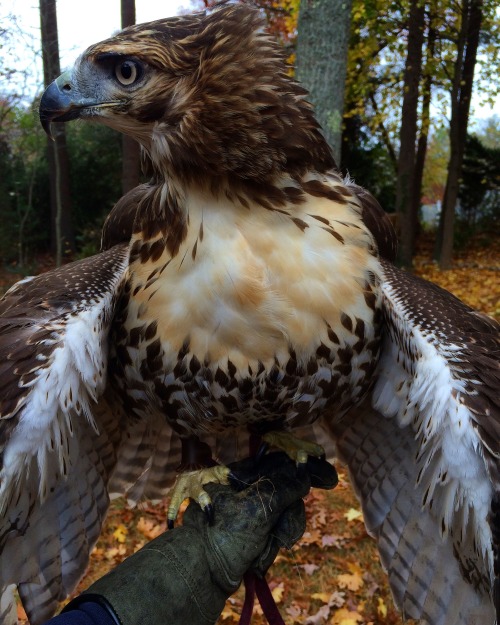Green Burial Practices Could Help The Environment


Green burial practices could help the environment
Traditional caskets are hundreds of pounds of wood, metal and whatever cushioning goes inside.. Burial vaults, the enclosures that barricade each casket from the elements, can be around 3,000 pounds of cement, sometimes steel. One gallon of toxic embalming fluid is used per 50 pounds of body. Add it all up and you’ve got around two tons of material per body chilling in the earth forever.
Despite the downsides of burial, not everyone wants to be cremated. Plus, there’s plenty of evidence suggesting the energy it takes to burn a body down wreaks significant damage on the environment.
Green burial could be the solution. The idea is to make as little an impact on the natural environment of the burial site as possible.
Follow @the-future-now
More Posts from Llamaslikesciencetoo and Others








the bajau laut are some of the world’s last true sea normads, living as they have for centuries almost entirely in the waters of the coral triangle (said to contain 75% of the world’s coral species) on long boats known as lepa lepa.
hunters of fish, pearls and sea cucumbers, the bajau people free dive to depths of 20 meters, hold their breath for up to three minutes, and spend up to 60% of their time in the water submerged - the equivalent of a sea otter. it is a common practice amongst bajau people to intentionally burst their ear drums at an early age to deal with the problem of equalizing.
as photographer james morgan explains, “traditional bajau cosmology - a syncretism of animism and islam - reveals a complex relationship with the ocean, which for them is a multifarious and living entity. there are spirits in currents and tides, in coral reefs and mangroves.” the bajau people, for example, will not spit in the ocean.
in the last few decades, increasingly depleted fish stocks and government efforts have forced many to settle permanently on land and abandon a life of self sufficiency known as cari laut, or ‘searching the ocean’. a dwindling few, however, still choose to live the majority of their lives at sea.
How do you think they'll dispose of Tillikums body? :/
They’ll probably do a necropsy after he dies to determine the exact cause of death. After that, I’m not sure what they’ll do. Normally they don’t tell anyone what happens to the animal’s body after they die. Perhaps since Tilikum is so well-known they’ll give him a proper burial/memorial? I’ve heard somewhere before (but for the life of me cannot remember where, so don’t take this as a fact) that Kalina is buried somewhere on the property of SeaWorld Orlando.
I know I’ve read that in Kamogawa Sea World they bury the dead orcas in a cherry blossom garden, which I think is very nice and respectful.

So You Think You Know Cephalopods?
Pop Quiz! Georgia Aquarium Wants to Test Your Knowledge of Cephalopods



dragon 🐉
In this short video, augmented reality startup company Magic Leap used their cool technology to make 3D magic happen in a school gym.


Manatee
dog


The Mud Dragons of Calvert Island, BC
Shedding light on these mysterious marine creatures.
by Josh Silberg
Spiky headed dragons roam the ocean floor from the poles to the tropics. But these are not winged beasts from the pages of science fiction. These strange creatures are Kinorynchs, aka “mud dragons“, and they are very real.
Roughly the size of a grain of salt, mud dragons are often overlooked, but a team from the Hakai Institute and the University of British Columbia (UBC) hopes to give them the spotlight they deserve.
“Canada has very few reports on these animals. The first step is to know what is there,” says Dr. Maria Herranz, a Hakai post-doctoral scholar and resident mud dragon expert at UBC…
(read more and see video: Hakai)
images by Marria Harranz

Your sunscreen is contributing to the decline of coral reefs
A new report has found that a common sunscreen ingredient is actually toxic to coral, and is killing off juvenile coral and severely damaging adult coral in high concentrations around the world, particularly in Hawaii and the Caribbean.
The ingredient in question? A UV-filtering chemical compound called oxybenzone - also known as BP-3 or Benzophenone-3 - which is found in 3,500 brands of sunscreen around the world, including L’Oreal Paris, Banana Boat, and Neutrogena.
- ScienceAlert

This picture looks just like another dead fish washed up on shore - until you realize that it’s actually a whale, and those are grizzly bears standing on it.
(Source)
-
 dumbasshoyo reblogged this · 7 years ago
dumbasshoyo reblogged this · 7 years ago -
 stormdancingmoon reblogged this · 8 years ago
stormdancingmoon reblogged this · 8 years ago -
 margoleon reblogged this · 8 years ago
margoleon reblogged this · 8 years ago -
 paconoli liked this · 8 years ago
paconoli liked this · 8 years ago -
 sinisaredhead liked this · 8 years ago
sinisaredhead liked this · 8 years ago -
 faerieincombatboots reblogged this · 8 years ago
faerieincombatboots reblogged this · 8 years ago -
 g63heavenonearth liked this · 8 years ago
g63heavenonearth liked this · 8 years ago -
 sightofthetombs reblogged this · 8 years ago
sightofthetombs reblogged this · 8 years ago -
 sightofthetombs liked this · 8 years ago
sightofthetombs liked this · 8 years ago -
 xxtheperpetualprofessionxx reblogged this · 8 years ago
xxtheperpetualprofessionxx reblogged this · 8 years ago -
 evoifc liked this · 8 years ago
evoifc liked this · 8 years ago -
 gettingknowledge reblogged this · 8 years ago
gettingknowledge reblogged this · 8 years ago -
 notime4yourshit reblogged this · 8 years ago
notime4yourshit reblogged this · 8 years ago -
 lady-charlotina reblogged this · 8 years ago
lady-charlotina reblogged this · 8 years ago -
 jimgandolfini reblogged this · 8 years ago
jimgandolfini reblogged this · 8 years ago -
 personale-osendale reblogged this · 9 years ago
personale-osendale reblogged this · 9 years ago -
 personale-osendale liked this · 9 years ago
personale-osendale liked this · 9 years ago -
 bananas-andstuff reblogged this · 9 years ago
bananas-andstuff reblogged this · 9 years ago -
 bussyfairy liked this · 9 years ago
bussyfairy liked this · 9 years ago -
 thehennesseyexp reblogged this · 9 years ago
thehennesseyexp reblogged this · 9 years ago -
 slightlyridiculous reblogged this · 9 years ago
slightlyridiculous reblogged this · 9 years ago -
 a-tess-renaissance reblogged this · 9 years ago
a-tess-renaissance reblogged this · 9 years ago -
 inazumaelle reblogged this · 9 years ago
inazumaelle reblogged this · 9 years ago -
 mentalvegetarian liked this · 9 years ago
mentalvegetarian liked this · 9 years ago -
 nothingspecialbutabloginggirl reblogged this · 9 years ago
nothingspecialbutabloginggirl reblogged this · 9 years ago -
 lenudiste liked this · 9 years ago
lenudiste liked this · 9 years ago -
 ashgottacatchemall liked this · 9 years ago
ashgottacatchemall liked this · 9 years ago -
 seventhfebruary liked this · 9 years ago
seventhfebruary liked this · 9 years ago -
 aamyah reblogged this · 9 years ago
aamyah reblogged this · 9 years ago -
 aamyah liked this · 9 years ago
aamyah liked this · 9 years ago -
 oliviameowmeowww reblogged this · 9 years ago
oliviameowmeowww reblogged this · 9 years ago -
 boloties liked this · 9 years ago
boloties liked this · 9 years ago -
 thamonster21 reblogged this · 9 years ago
thamonster21 reblogged this · 9 years ago -
 3vins reblogged this · 9 years ago
3vins reblogged this · 9 years ago -
 atasteofhunny liked this · 9 years ago
atasteofhunny liked this · 9 years ago -
 crazies-and-curls reblogged this · 9 years ago
crazies-and-curls reblogged this · 9 years ago -
 crazies-and-curls liked this · 9 years ago
crazies-and-curls liked this · 9 years ago -
 earthbrwn liked this · 9 years ago
earthbrwn liked this · 9 years ago -
 wondergirl711 reblogged this · 9 years ago
wondergirl711 reblogged this · 9 years ago -
 baja-blaster liked this · 9 years ago
baja-blaster liked this · 9 years ago
Mainly interested in ecology, but also the entirety of science.
179 posts